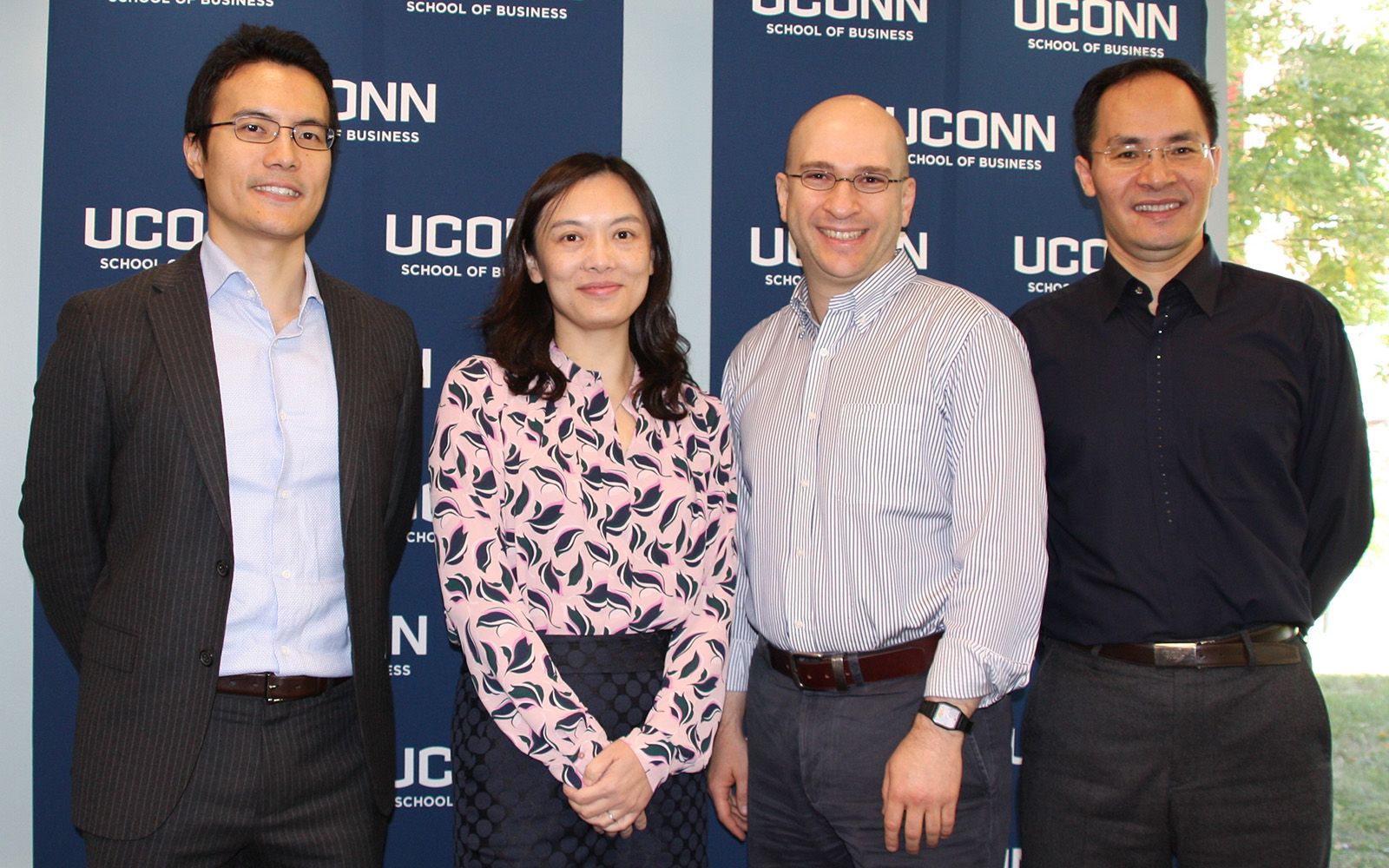
“Marketing in the Digitalized Marketplace” was the theme of the marketing department‘s 7th VOYA Global Colloquium. The Oct. 20 event gathered marketing researchers from across the country to discuss research in the growing areas of user-generated content, social networks, new media, and digital analytics.
“The colloquium was both interesting and helpful, as it gathered researchers with a common interest from across the nation. At UConn, many of our faculty members are working in this realm,” said marketing professor Jane Gu, who organized the event. “I believe our Ph.D. students benefited the most from meeting with these top researchers and observing how they approach the same general topic from different research angles.”
Among the presenters were:
Shijie Lu (University of North Carolina, Chapel Hill) spoke on Dynamic Effect of Digital Badging on User-generated Content Platforms. This research empirically examines the dynamic effect of digital badging on individual user’s content consumption, interaction, and generation behavior on a UGC platform. An interesting finding is that in the long run, digital badges awarded by the platform can encourage content generation but suppress content consumption.
Xueming Luo (Temple University) spoke on Targeting and Retargeting Experimentation and Machine Learning: Mobile Big Data Analytics. This study combines large-scale randomized field experiments and machine learning approach to investigate the optimal strategy to distribute targeting and retargeting advertisements. An interesting finding is that targeting and retargeting strategies should be personalized based on the receivers’ attributes such as gender, age, and locations to maximize firm profits.
Yakov Bart (Northeastern University) spoke on Online Advertising Effectiveness across Media Channels and Countries. This study investigates online media advertising effectiveness using three controlled field experiments in the U.S., China and the Netherlands. For the real-world stimuli in the automobile industry, the results show that advertising effectiveness of online videos is consistently stronger than social media, banner and search, and that the relative strength of social media increases the further the consumer is from purchasing.
Ying Xie (University of Texas, Dallas) spoke on A Structural Model of Network Dynamics: Tie Formation, Product Adoption, and Content Generation. This research models the co-evolution of individuals’ friendship tie formations and their concurrent online activities within a social network. The results show that the total number of friends, and the number of common friends this potential friend has, are important drivers of friendship formation. While having more friends does not make a person more active, having more active friends does increase a user’s activity levels in terms of both product adoptions and content generation through peer effects.